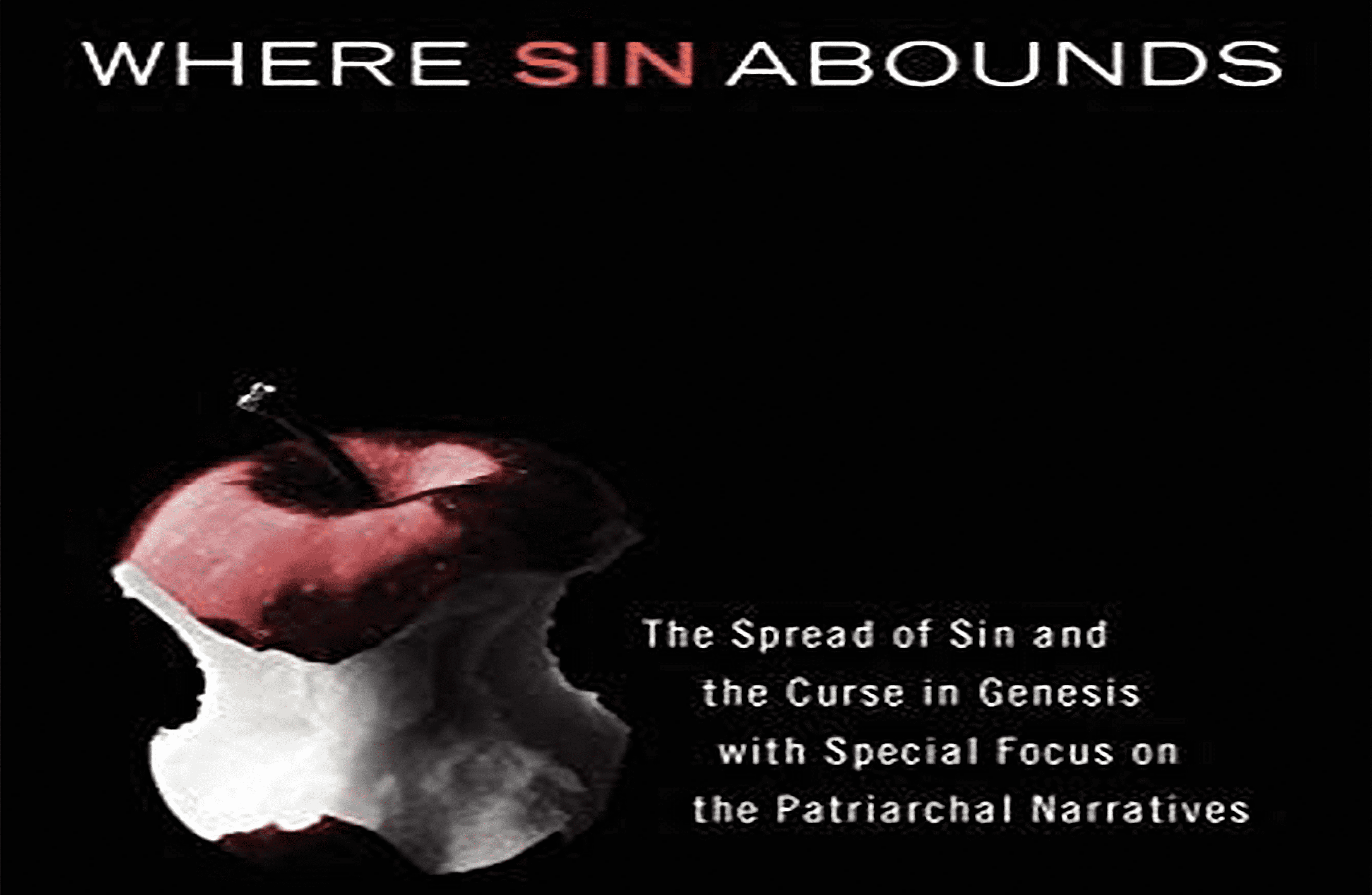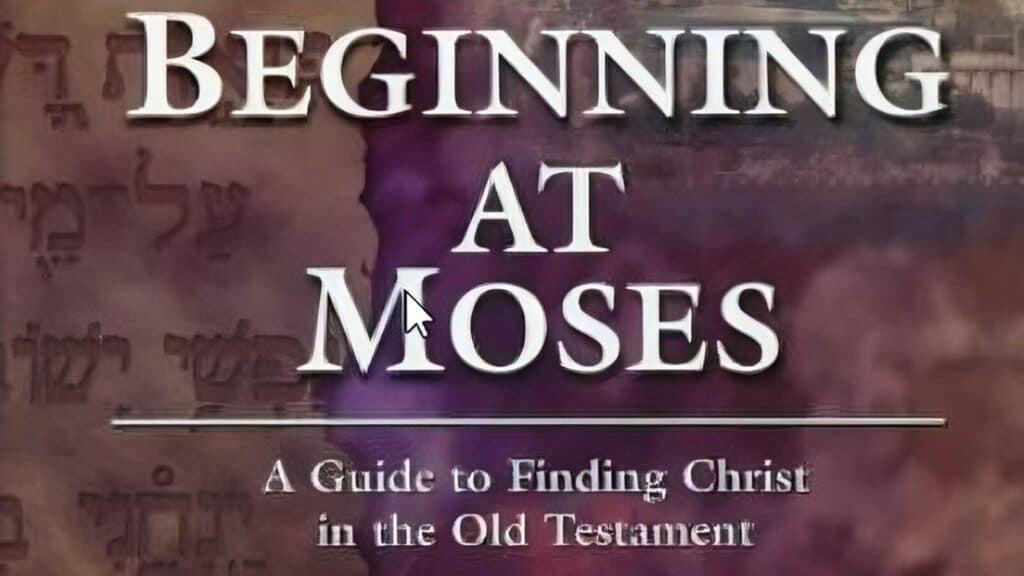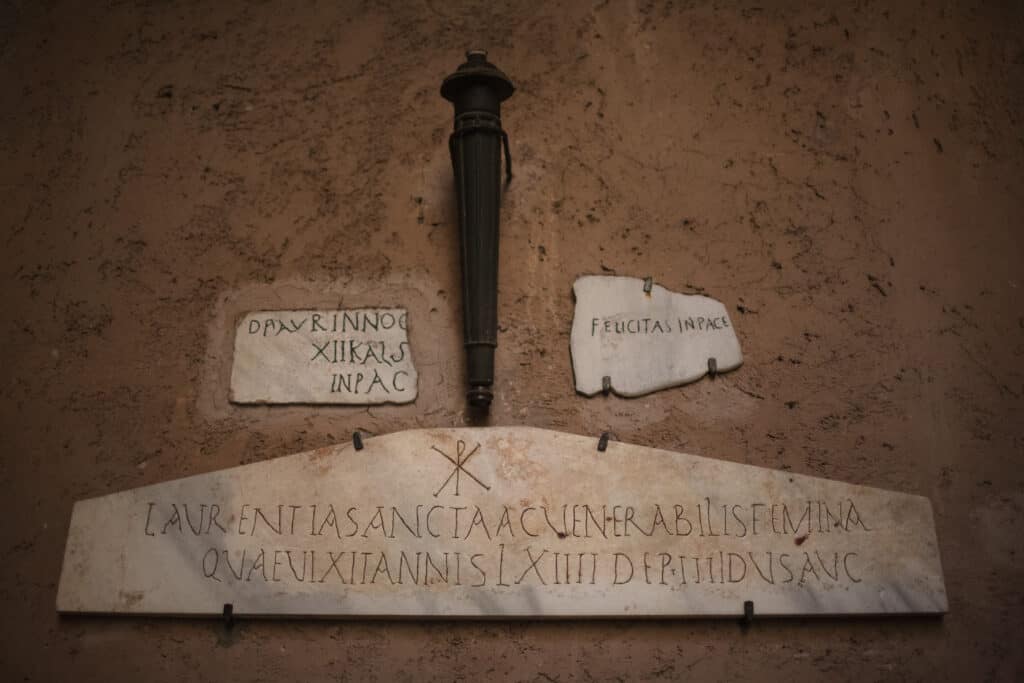The underlying is a repository of highlights from my reading of the following book:
Robert R. Gonzales Jr., Where Sin Abounds: The Spread of Sin and the Curse in the Book of Genesis with Special Focus on the Patriarchal Narratives (Eugene, OR: Wipf & Stock, 2009).
You can purchase this book HERE (Affiliate Link)
Part 1
First, the distinction between primeval and patriarchal history is not as sharp as sometimes alleged. Recent studies have demonstrated the integrity of the book as a whole and suggest that the central themes of chapters 12–50 actually are grounded in chapters 1–11. The unity of Genesis would seem to suggest that important themes developed in primeval history (e.g., spread of sin) will receive further treatment in patriarchal history. Second, as noted in the introductory remarks, the NT assigns a sin-revealing function to the entirety of the OT (Rom 3:10–20), especially the Torah, which includes the book of Genesis (Rom 5:12–21). Third, the NT writers portray the patriarchs not only as saints but also as sinners saved by grace. In particular, Paul describes Abraham as an “ungodly” (ἀσεβῆ) man whom God justified. Since this description carries negative moral overtones and cannot be limited to Abraham’s pre-conversion state, it is likely Paul saw the patriarch’s vices as well as virtues when he read the Genesis text. Finally, and most importantly, a careful exegetical and theological analysis reveals an equal if not greater emphasis on the pervasiveness of human sin in the patriarchal narrative than that found in the primeval narrative. 7–9.
The fact that the angelic guardian-creatures called “cherubim” (כְּרוּבִים) were also present in the Garden of Eden (Gen 3:24; Ezek 28:12–15) lends further support to the view that the “primeval serpent” (Rev 20:2, NJB) was not an ordinary snake but an angelic being who was about to lead the vice-regents of Yahweh-Elohim into cosmic mutiny 27–28.
Eve responds to the Serpent’s query (or accusation) in two parts. First, she assures him, “We may eat of the fruit of the trees in the garden” (3:2). Her words are almost identical to God’s statement to Adam in 2:16, except she leaves out the infinite absolute (אָכֹל) which serves to underscore God’s generosity: “you may freely eat.” This may indicate a subtle shift in Eve’s mind away from God’s generosity and towards the prohibition, which she addresses in the next verse. “But God said,” Eve adds, “ ‘You shall not eat of the fruit of the tree that is in the midst of the garden, neither shall you touch it, lest you die’ ” (3:3). Once again, her representation of God’s original statement is close but not exact. She fails to include another infinitive absolute that stresses the certainty of God’s threatened penalty: “for in the day that you eat of it you shall surely [מוֹת] die” (2:17). Perhaps Eve is already questioning the seriousness of God’s warning or his ability to carry it out. Some have argued that Eve’s use of the negative particle פֶּן also betrays a degree of uncertainty in Eve’s mind: “lest we might die.” She also adds an extra clause: “neither shall you touch it [וְלֹא תִגְּעוּ בּוֹ] which nearly all commentators interpret as an exaggeration of the prohibition and therefore an indication that Eve was construing the prohibition in an entirely negative way. 30.
Finally, since Eve does not experience shame and guilt until after eating the fruit (3:7), it is premature to assign the beginnings of human sin to this point of the narrative. As a result of these considerations, Eve’s initial response to Satan’s attack appears to be an appropriate response (cf. Eph 6:17). 31–32.
At the root of humankind’s first sin is hubris or pride. The Serpent suggested to the humans that they, not God, controlled their destiny (3:4), and therefore, that they were free to determine independently what was right or wrong, beneficial or harmful (3:5). 36–37.
In conclusion, pride is the root that motivates human sin. This pride, in turn, prompts unbelief in the veracity of the divine word,83 the violation of which constitutes rebellion or a breach of covenant. 38.
The reader must concede that the charge of blameshifting is grammatically and syntactically justifiable.93 Nevertheless, he should also note that Adam’s and Eve’s respective explanations are factual: the events are retold as they actually transpired. 42.
God is withdrawing his unqualified blessing and imposing a curse upon the filling and the subduing of the earth, that is, humankind’s creational mandate (1:26, 28) 48.
However, both Old and New Testament writers link human death with God’s wrath and curse and identify it as a consequence of human sin (Ps 90:3–12; Ezek 18:4; Rom 5:12ff.; 6:23; 8:6; 1 Cor 15:21–22; 56a; Heb 9:27; Jas 1:15). 49–50.
That Adam evidenced hope in a redemptive reversal that would emerge from Yahweh’s curse is suggested in his naming of Eve, which Moses positions immediately following the curse-sanction (3:20). That Adam’s response is an act of saving faith is intimated by Yahweh’s reciprocal action of clothing the human couple to hide their nakedness, which signifies that Adam and Eve’s “fig-leaf” coverings. 51.
Partaking of a divine sacrament appointed for blessing in an unworthy manner results in judgment rather than blessing (1 Cor 11:27–29). 53.
Part 2
Cain’s lack of devotion to Yahweh is the first indication that sin has spread from the primordial parents to their offspring. 59.
Instead of publicly acknowledging his wrong to Yahweh and dealing with his sinful anger, Cain speaks to Abel privately (4:8a), probably suggesting to his brother that he had something he wanted to communicate to him outside, away from Yahweh’s presence. Hence, Cain’s deed is premeditated. And when the two brothers pass through “the door” of the sanctuary, Cain conveys to Yahweh and all present that he will not humble himself and acknowledge his sin. 60–61.
Both the similarity and also the disparity between God’s dealings with Adam and his dealings with Cain are significant. In God’s primeval curse on the Serpent and on humanity’s earthly life and vocation (3:14–19), Adam apparently detects a note of grace that engenders a response of faith despite the reality of the curse (3:20). Following Adam’s positive response, God mitigates his curse by providing Adam and Eve with clothing to serve as a covering, indicating a divinely initiated expiation of their guilt (3:21). Unlike his father, Cain senses no mercy in Yahweh’s curse and responds with an impenitent grievance (4:13–14). 63.
What began as a seed planted within the hearts of the primordial man and woman has taken root in the second generation and grown into an ugly weed of human hubris that will rapidly spread throughout the earth, turning what God intended to be a paradisiacal Garden into a howling wasteland of evil and misery. 64.
First, Cain probably put little stock in God’s oath-bound protection edict and therefore built a fortified city for protection, one of the primary purposes for city-building in the ancient Near East. Second, since Cain’s curse entailed wandering aimlessly as a man without a home (4:12b, 14b), his determination to settle (ישׁב) in the land of Nod (“Wandering”!) appears to be a human effort to reverse or override the divine curse. Third, Cain names the city after his son, reflecting an effort to secure an enduring name and dynastic succession
Lamech’s sin underscores the growth of human pride and violence in two striking ways. First, Lamech apparently originated bigamy (which would later burgeon into polygamy) by taking two wives instead of one (4:19) and thereby violating the sacred institution of monogamous marriage (2:18–24). The narrator does not indicate whether Lamech’s action was motivated by an unbridled lust for sexual pleasure or by an effort to increase the likelihood of more offspring. In either case, he oversteps the parameters of the creation ordinances and acts autonomously. Second, Lamech violates the sanctity of human life in a way that exceeds the heinous nature of Cain’s murderous deed. Cain killed Abel and attempted to evade responsibility when confronted (4:9). But Lamech artfully gloats about his murderous act (4:23f.). Cain pled for divine leniency and protection (4:13–14), but Lamech assumes Yahweh’s authority and with godlike prerogative places himself under imperial immunity (4:24). So the seven-step progression from Cain to Lamech manifests an unmistakable escalation in hubris and violence. 69.
This exposure of emotional turbulence within the heart of an infinite, eternal, unchangeable God is one of the greatest indicators of the colossal proportions of human sin. 81.
Yahweh’s pained heart is soothed when he smells the aroma of the burnt offerings wafting from Noah’s altar (8:20–21a). In response, God pledges never again to destroy the world with a flood but to provide a stable environment wherein he may bring to fruition his redemptive plans for humanity (8:21b–22; 9:1–17). Yet, an ominous note sounds among an otherwise harmonious chorus of divine goodness. Yahweh’s covenant promise is made “even though [כִּי] every inclination of [man’s] heart is evil from childhood” 83.
So, even as “the sons of Adam” (בְּנֵי הַאַדַם)112 toil away in their attempt to scale heaven, Heaven comes down (ירד) to investigate their tower-building efforts (11:5). Yahweh is not amused. What he “discovers”114 is the same alarming grasp for divinity that motivated the primordial couple to take the forbidden fruit—only this time on an international scale (11:6)! 89–90.
Part 3
Abraham’s intercession for the city serves to underscore its irredeemable condition (18:22–33). Abraham entreats Yahweh to withhold judgment for the sake of the righteous who may dwell in the city. The patriarch’s prayer is no doubt based on the supposition that God is just and would not bring forth such catastrophic judgment prematurely, that is, while a sufficient amount of righteous citizens inhabited the city. Abraham begins with fifty and continues to reduce the number as he takes the hint, either from Yahweh’s tone of voice or from the fact that Yahweh does not recall his angels, that such an amount of righteous citizens does not exist (18:24–31). When he reaches ten, the patriarch goes no further (18:32–33). The reader is not told why the patriarch ceased at ten persons. Maybe Abraham has deduced that a number less than ten is not sufficient to stay divine judgment. Or perhaps he stops out of fear of discovering that even his nephew has assimilated into the debauched culture and apostatized from the faith. 104.
Pharaoh clearly interprets Abram’s actions as morally wrong. His summons of the patriarch and rhetorical question indicate a formal charge of transgression (Gen 3:13; 4:10; 20:9; 26:10; 29:25; 31:26; 44:15) leveled against the patriarch, and Abram makes no attempt to answer the charge. 116.
That Lot’s gaze seems to have moved first in the direction of the well-watered valley suggests that he had already been nursing a desire to move in that direction. Lot’s casting of his eyes toward an Eden/Egyptian-like breadbasket (Gen 2:9; 11:10) is reminiscent of Eve’s craving for the forbidden fruit (Gen 3:6) and Israel’s lusting for the fleshpots of Egypt (Exod 16:3; Num 11:5; 21:5; Acts 7:39). Hence, Lot’s choice is cast in the form of a grasping for something outside the will of God. 120.
Although he commendably attempts to protect his visitors from homosexual rape (19:3–7), he compromisingly offers his own virgin daughters in the place of his visitors in order to appease the raging lust of his fellow Sodomites (19:8). 123.
The angels issue a final warning, urging Lot to escape with his wife and two daughters (19:15). “But he lingered” (וַיִּתְמַהְמָהּ)” (19:16a). The Hebrew verb stem emphasizes both a reflexive and repetitive action. 124.
The reader should not miss the parallels with the story of Noah and his sons. God rescued both Noah and Lot, along with their families, from a cataclysmic judgment (6:7, 13, 17; 7:4, 21–23; 19:13, 17, 24–29). Both Noah and Lot become drunk with wine sometime after their deliverance (9:21; 19:33, 35). In both cases, the “nakedness” of Noah and Lot is exploited by their offspring (9:22; 19:33, 35). The result, in both cases, is a line of cursed descendants (9:24–25; 19:37–38). 125–126.
Unfortunately, the pregnancy does not bring the anticipated happiness Sarai had hoped for but rather contempt, jealousy, and strife, which in turn prompt Hagar to run away (16:4b–6). 129.
Third, the narrator underscores the fact that Hagar was the Egyptian slave who belonged to Sarai (16:1, 3). That Hagar was from Egypt would have likely provoked a degree of detestation in the mind of the original Israelite reader. How could the father of the Israelite nation stoop so low as to marry a woman from among those outside the covenant! Furthermore, the fact that she was an Egyptian servant-girl may suggest that she was part of the spoil Abram gleaned from his sinful ruse in Egypt several years earlier (12:16). Hence, Abram’s earlier sin will come back to haunt him, and the chosen family will have to reap something of what they have sown. 130–131.
Fifth, the parallel between the action of the patriarchal couple and the sin of the primeval couple is evident in the language chosen by the narrator to depict Sarai and Abram’s deed. Sarai “took” (וַתִּקַּח) Hagar, like Eve “took” (וַתִּקַּח) the fruit of the forbidden tree, and she “gave” (וַתִּתֵּן) Hagar to Abram, as Eve “gave” (וַתִּתֵּן) the fruit to Adam (compare 3:6 with 16:3). Furthermore, as Adam “listened to the voice of [his] wife [שָׁמַעְתָּ לְקוֹל אִשְׁתֶּךָ]” (3:17), so Abram “listened to the voice of Sarah [וַיִּשְׁמַע אַבְרָם לְקוֹל שָׂרָי]” (16:2). These linguistic parallels have led Werner Berg to the conclusion that “Gen 16:1–6 ist tatsächlich die Erzählung von einem Sündenfall.” 131.
Moreover, the narrator reveals that Abraham’s guiding assumption, namely, that there was “no fear of God in this place” (20:11), was unfounded. Abimelech and his servants had more conscience and sense of moral decency than Abraham had anticipated. Moses’s point is not to elevate the morality of pagan culture but to highlight the lack of morality even among God’s chosen. 136.
That the verb in its Piel form sometimes carries sexual connotations (26:8; 39:14, 17) has led Jonathan Kirsh to the conclusion that Ishmael was sexually abusing his little brother. But the Piel form may also be used in the sense of foolish jesting or mockery (19:14; 39:14, 17). 141–142.
First, Isaac did not have recourse to the “half-truth” defense, as his father apparently did. Sarah may have been Abraham’s half-sister as well as his wife (20:12), but Rebekah was Isaac’s cousin (24:15, 24, 27). Second, the narrator indicates that this charade continued for “a long time” (אָרְכוּ־לוֹ שָׁם הַיָּמִים; literally, “the days were long for him there”). This phrase has the effect of nullifying Isaac’s prior fears. 146–147.
Isaac’s preference for Esau is governed not by a consideration of his son’s moral or spiritual qualities but by an acquired taste for his culinary creations. Isaac’s physical blindness thus becomes a metaphor for his spiritual blindness. Or as Wenham tersely remarks, “Isaac’s sensuality is more powerful than his theology.” 156.
Whereas both Jacob’s parents resorted to prayer when they perceived obstacles to the future (25:21, 22), there is no mention of Jacob praying to God for the realization of his perceived destiny (25:23). Only Jacob’s clever cunning comes into view. 177.
Yet the text does not suggest that Jacob was legally or morally obligated to work another seven years for Rachel. Perhaps Jacob could have successfully annulled the marriage on the basis of Laban’s breach of contract. Or he could have acknowledged God’s own hand behind the ruse, as his father Isaac had been forced to acknowledge (27:33, 37, 39–40), accepting the firstborn (הַבְּכִירָה) as an appropriate complement for the one who by his own deceitful cunning had obtained firstborn status (בְּכֹרָה) (25:31–34). But Jacob’s preferential affection for Rachel overruled (29:18), and he willingly entered into a relationship that would breed the same kind of sibling rivalry that he had known at home. 183.
The context suggests that Isaac’s “untimely” birth made him a kind of “miracle child.” Jacob probably viewed the births of Joseph and Benjamin as unique, not only because of his advanced age but also because of the general barrenness of Rachel’s womb. Hence, Jacob now has two reasons to show partiality towards Joseph—he is the son of his favorite wife and one of his two “miracle children.” 189.
Luther commends Jacob for his partiality towards Joseph and asserts, “I also would have loved such a son more than the rest, even if he had not been the firstborn, inasmuch as he showed himself obedient and compliant in all things.” 190.
In summary, the “Rape of Shechem” narrative advances the spread of sin theme in the Genesis narrative. From Cain’s hate-filled murder of Abel (4:8) to Lamech’s unwarranted assassination of “a young man” (4:23) to an antediluvian society “filled with violence” (6:11, 13) to Nimrod’s imperial tyranny (10:8–12), the primeval narrative was characterized by hated, hostility, and bloodshed (Gen 9:5–6). The transition from primeval history to patriarchal history reveals that matters have not improved. If anything, matters have grown worse. For now, the roles are reversed. Instead of the wicked (Cain) slaying the righteous (Abel), the reader encounters “the righteous” (the sons of Jacob) wantonly murdering “the wicked” (Shechemites). The irony here is the fact that the sons of the promise reveal themselves to be “the seed of the Serpent” (Gen 3:15) since like their “spiritual father” they are portrayed as “liars” and “murderers” (see John 8:44; 1 John 3:10–12). Accordingly, one is inclined to agree with John Gibson, who concludes, “With its unvarnished picture of raw passion and perfidy, it is one of the darkest tales in the Bible.” 207–208.
Up to this point, the patriarchal narratives have exposed the occasional practice of polygamy among the chosen community. More serious cases of immorality such as homosexuality and rape have been limited to pagan society (19:5–9; 34:2), with the exception of the incestuous act of Lot’s daughters with their own father (19:30–36). There, Lot was not completely conscious of his evil action. Here both parties appear complicitous since the text gives no indication that Bilhah was raped or sought to resist Reuben’s advance. Sadly, Jacob’s decision to encamp before Shechem (וַיִּחַן אֶת־פְּנֵי הָעִיר) had degrading moral effects on his family comparable to those resulting from Lot’s decision to pitch his tent towards Sodom (וַיֶּאֱהַל עַד־סְדֹם). 209.
These examples of power play within Israel’s monarchy suggest, as Roland de Vaux observes, “Possession of the harem was a title to the throne.” 210.
Judah compounds this sin by deceiving his father into thinking Joseph had been killed (37:31–32) and, what is worse, he aggravates the cruel nature of that deception by attempting to “comfort” his father in the face of Jacob’s loss (37:35). In doing so, Judah provides a striking illustration of the proverb, “the mercy of the wicked is cruel” (Prov 12:10). 221–222.
Judah enters as a slave trader who has turned his back on Abraham’s God-given vision. He is callous toward his father and cynical about the covenant family. The narrator’s report that he has entered intimate relationships with Canaanites speaks volumes (cf. 24:3; 27:46–28:8; 34:1). 223–224.
Three discernable kinds of retribution find prominence in patriarchal history. The first resembles the Flood judgment and may be viewed as a typical eschatological intrusion of the Final Judgment. The second is like the first but on a much smaller scale. It involves supernatural retaliatory interventions against individuals or groups that threaten God’s promise community. The third kind of retribution, often missed, may be termed “poetic justice,” or more appropriately “providential payback,” and is often the chastening rod God uses on his people. 240.
In fact, it is highly probable that Hagar the maidservant was part of Abraham’s “spoil” obtained from Pharaoh (12:16). 244–245.




Excellent write-up
Excellent write-up
You are truly a excellent webmaster. This web site loading velocity is amazing.
It sort of feels that you’re doing any distinctive trick. Also, the
contents are masterwork. you’ve done a great job
in this topic! Similar here: najtańszy sklep and also here: Sklep internetowy
Good day! Do you know if they make any plugins to assist with
Search Engine Optimization? I’m trying to get my blog to rank for some targeted keywords but I’m not seeing
very good results. If you know of any please share.
Thanks! You can read similar article here: Najlepszy sklep
Hi there! Do you know if they make any plugins to assist with SEO?
I’m trying to get my blog to rank for some targeted
keywords but I’m not seeing very good results.
If you know of any please share. Thank you!
You can read similar article here: Sklep internetowy
Hi there! Do you know if they make any plugins to assist with SEO?
I’m trying to get my blog to rank for some targeted keywords but I’m not seeing
very good results. If you know of any please share.
Cheers! You can read similar blog here: Najlepszy sklep
Hello! Do you know if they make any plugins to help with Search Engine Optimization? I’m trying to get
my site to rank for some targeted keywords but I’m not seeing
very good results. If you know of any please
share. Appreciate it! I saw similar blog here: GSA Verified List
Hi there! Do you know if they make any plugins to help with SEO?
I’m trying to get my blog to rank for some targeted keywords
but I’m not seeing very good success. If you know of any please share.
Cheers! You can read similar art here: AA List
Wow, marvelous blog structure! How lengthy have you ever been running a blog for?
you make blogging look easy. The whole glance of your site is fantastic,
let alone the content material! You can read similar here prev
next and that was wrote by Gregg03.
Wow, superb blog layout! How long have you ever been blogging for?
you made running a blog glance easy. The overall look of your website is excellent, as well as the content!
I read similar here prev next and those was wrote by Craig68.
Wow, awesome blog layout! How long have you ever been blogging for?
you make running a blog glance easy. The whole glance of your
website is magnificent, let alone the content material!
You can read similar here prev next and that was wrote by Vania73.
[url=https://bestmedsx.com/]canadian pharmacy prices[/url]
Wow, fantastic blog structure! How long have you ever been running a blog for?
you made running a blog look easy. The whole glance of
your site is great, let alone the content! You can see similar
here prev next and that was wrote by Lakiesha05.
Wow, wonderful weblog structure! How lengthy have you ever been blogging for?
you make blogging glance easy. The entire glance of your website is magnificent, as smartly as the content material!
I saw similar here prev next and it’s was wrote
by Emilio83.
Wow, awesome blog structure! How long have you ever been blogging for?
you made running a blog look easy. The whole glance of your
website is excellent, let alone the content material!
I saw similar here Maryellen Jar7. 2024/04/23
[url=https://valtrexv.com/]valtrex 500 mg daily[/url]